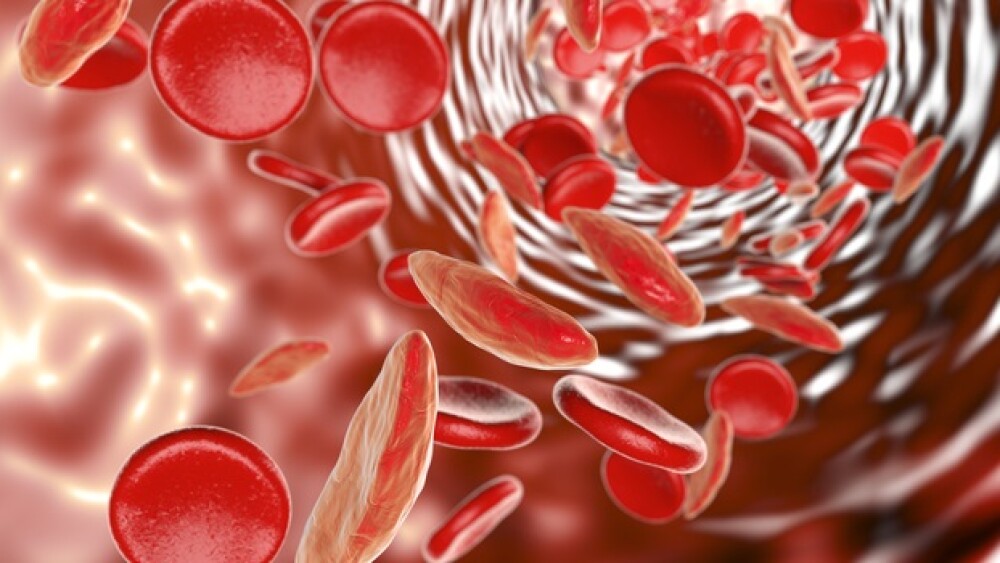Global Blood Therapeutics (GBT) reported the results of a review of Part A of its Phase III HOPE (Hemoglobin Oxygen Affinity Modulation to Inhibit HbS PolymErization) Study of voxelotor for sickle cell disease.
Global Blood Therapeutics (GBT), based in South San Francisco, reported the results of a review of Part A of its Phase III HOPE (Hemoglobin Oxygen Affinity Modulation to Inhibit HbS PolymErization) Study of voxelotor for sickle cell disease.
The trial met its primary endpoint, the proportion of patients with greater than 1 g/dL increase in hemoglobin versus baseline, which was a statistically significant increase at both the 1500 mg and 900 mg doses after 12 weeks compared to placebo. Of the patients receiving the 1500 mg dose, 58 percent had a greater than 1 g/dL increase in hemoglobin at 12 weeks compared to 9 percent of patients taking a placebo. Of the patients receiving the 900 mg dose, they had a 38 percent increase. The company stated, “This compares favorably to the hemoglobin increase assumption agreed to with the U.S. Food and Drug Administration (FDA) in the HOPE Study protocol of a 35 percent response.”
The study also showed statistically significant and dose-dependent improvements in hemoglobin, reticulocytes and bilirubin with both doses of voxelotor, and improvements in anemia and hemolysis in patients with or without a background use of hydroxyurea. About 64 percent of patients enrolled in this group of the trial were on hydroxyurea.
In May, the independent Data and Safety monitoring board (DSMB) wrapped up a safety review and did not identify any safety concerns in adults and adolescents. It supported the initiation of dosing in children as young as four years of age.
Based on the data so far and discussions with regulatory authorities, GBT plans to dose Part A patients as well as about 100 more across all three treatment arms in order to generate more data. It doesn’t plan, at this time, additional enrollment until it completes FDA discussions.
Voxelotor, previously known as GBT440, is an oral, once-daily therapy for SCD. It works by increasing hemoglobin’s affinity for oxygen. Oxygenated sickle hemoglobin does not polymerize, and the company believes the drug blocks polymerization, which causes the sickling of the red blood cells.
The drug has received Breakthrough Therapy, Fast Track, Orphan Drug and Rare Pediatric Disease designations from the FDA. The European Medicines Agency (EMA) has included the drug in its Priority Medicines (PRIME) program, and the European Commission (EC) has designated voxelotor as an orphan medical product.
“Give the well-established association between chronic hemolytic anemia and SCD-related morbidity and mortality, we believe the clinically meaningful increase in hemoglobin and improvement in hemolysis together with the safety profile demonstrated in Part A are highly encouraging,” stated Ted Love, GBT’s president and chief executive officer. “Based upon voxelotor’s robust impact on hemolytic anemia, we believe it meets the standard for accelerated approval, and we look forward to providing further updates on our regulatory discussions as soon as possible, but no later than year-end. We are grateful to the patients and families who have participated in our clinical studies, allowing us to potentially deliver this transformative therapy to the SCD community.”
This would seem to be good news, but investors must not have thought so. Shares dropped 5.94 percent and as much as 12 percent in premarket trading. STAT analyst Adam Feuerstein tweeted, “The GBT hemoglobin and hemolysis data look very good. Positive trend on VOC reduction. PRO was a total bust.” PRO refers to patient-reported outcomes. VOC refers to vaso-occlusive crisis, a common painful complication of sickle cell anemia in adolescents and adults.
The company stated, “The patient reported outcomes (PRO) data were difficult to interpret due to low baseline symptom scores and high inter-subject and intra-subject variability. Given this, GBT does not plan to utilize the PRO as a key secondary endpoint.”





